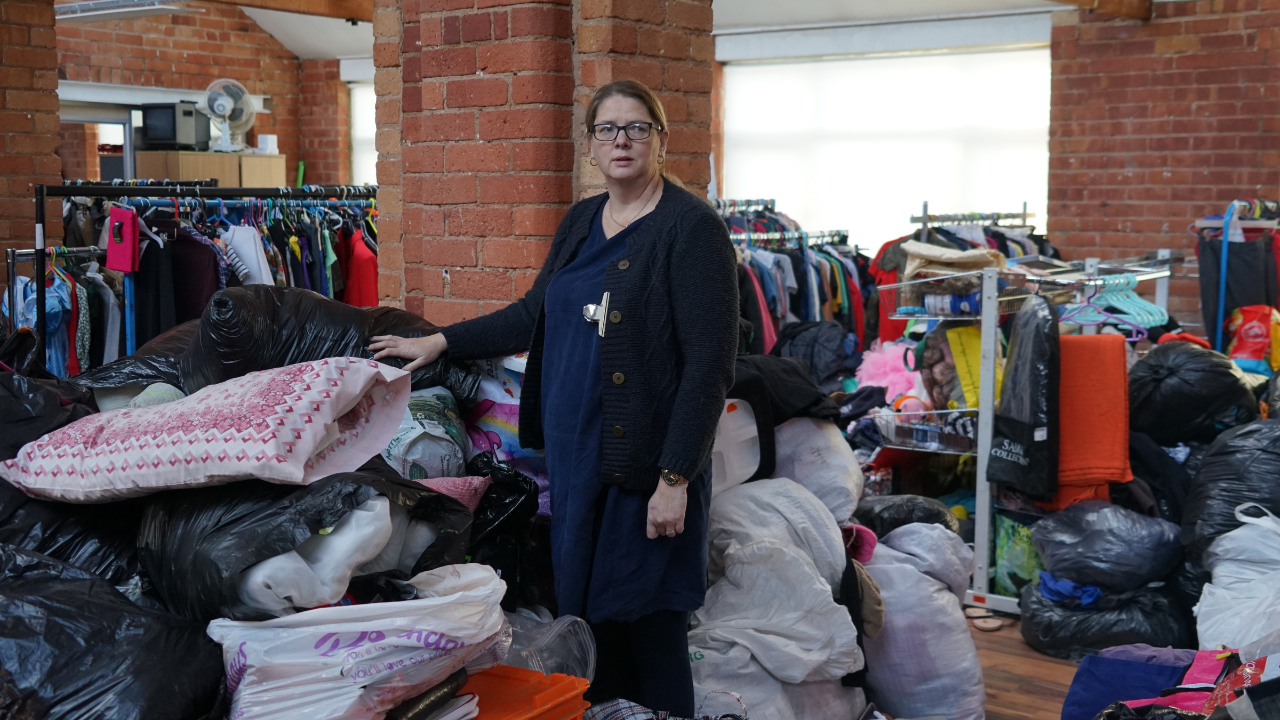How letter from thief helped charity volunteers move on
A heartfelt letter of remorse from a charity shop thief helped volunteers feel less vulnerable.
The communication between the perpetrator and the victims of the crime – a service known as restorative justice – also gave the volunteers a chance to directly voice their anger that someone could steal from the needy.
The incident, being highlighted as part of Restorative Justice Week this week, happened at the Mesopotamia Charity Shop in Valley Road, Basford, on 3 April 2024.
Charity Founder Rachel Miller was in the back of the shop with volunteers preparing a food parcel for a family who had recently been made homeless, when a man walked into the shop and stole a charity cash box from the front counter, as well as a coat, a bag and some socks.
The incident, which was caught on CCTV, caused a mixture of anger, fear and frustration among those who give their time to the charity.
But after being supported by Restorative Nottinghamshire, a free service commissioned by the Office of the Police and Crime Commissioner for Nottinghamshire and delivered by Remedi, they were able to come to terms with the incident and put it behind them.
Rachel said: “Our reactions ranged from absolute anger – how dare this person come in to somewhere that’s trying to do good – to absolute disbelief that someone would take a charity box meant for really vulnerable people.
“And actually, if he had just asked, we would have probably given him everything he stole from us.”
Following a police investigation which saw the perpetrator charged and sentenced for this and a number of other offences, Rachel received contact from Restorative Nottinghamshire to offer an additional service offering the victims a chance to communicate with the perpetrator – allowing them to let him know how the crime it impacted on them and try to understand his motivations.
After being reassured that the intervention would not impact on the sentence given by the court – and that he had in fact already been sentenced – Rachel spoke with her colleagues and they decided to reach out to him.
As he was serving a prison sentence at that time, they wrote him a letter and they received a reply.
“We all felt it was really genuine and heartfelt. There was genuine remorse there,” said Rachel.
“What it has given me is a bit of peace of mind. It has given the volunteers a chance to realise it wasn’t targeted and that was quite important for the vulnerabilities that we all have.
“He said in his letter he had actually come in for help and the opportunity was just in front of him and he needed drugs. The pull of drugs was just too much at that moment.
“I didn’t realise that I had a weight on my shoulder until the process had finished, and then I thought ‘do you know what, I feel a lot better about this. I feel a lot calmer.’”

Restorative Nottinghamshire is just one of a number of support services for victims of crime funded by the Office of the Police and Crime Commissioner for Nottinghamshire.
Restorative justice is a voluntary process, which provides those harmed by the offence the opportunity to explain the full impact of the offence and ask questions directly to the person responsible.
It also provides the person who committed the offence, the opportunity to take responsibility for and to explain their actions, to make amends and to apologise, if this is appropriate.
Restorative justice interventions are delivered by trained facilitators in a safe environment. Communication can take place by a face-to-face meeting, a remote video or WhatsApp call and/or through the exchange of letters/verbal messages.
Nottinghamshire Police and Crime Commissioner Gary Godden said: “This is a great example of how restorative justice can support victims of crime and help them come to terms with the emotional aftermath that comes with being a victim of crime.
“Often, the only person who can explain the motivation behind the crime is the person who carried it out. To have a chance to communicate with them and ask those burning questions you may be left with, can be a real source of relief and comfort.”
Keely Grainger, Restorative Nottinghamshire Manager, said: “The Restorative Justice process helps people move forward from the harm that has been caused and have safe communication around the impact of the offence.
“The more people that we can help access this service, the better as the outcomes for both sides are positive. We want to give victims of crime a voice and this service definitely provides that.”
- For more information about Restorative Nottinghamshire, visit www.restorativenotts.org.uk


